Resources Library: Population-Specific Response
Start a Search:
Bisexual Survivors: A Focus on Survivor-Centered Design
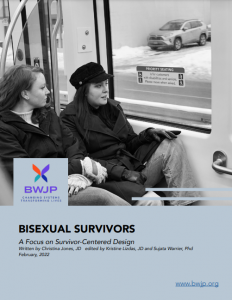
In this report, the Battered Women's Justice Project (BWJP) examines the experience of bisexual+ survivors of intimate partner violence due to the alarming statistics concerning violence against bisexual+ women and the lack of resources in the field that address barriers and systemic bi-antagonism existing within systems.
For decades, systems professionals have been attempting to address the problem of intimate partner violence through the work of Coordinated Community Response (CCRs). The results have been promising for certain types of survivors. Often the needs of groups who are white, cisgender, heterosexual, and not living with a disability have been addressed by CCRs. CCRs and Intimate Partner Violence and Homicide (IPVH) responses have largely ignored the concerns of survivors from various marginalized communities, including communities of color, LGBTQ+,1 and disabled. The oversight has meant that many of the survivor’s face violence in the home have to deal with systems’ responses that do not meet their needs. Systems’ responses can further jeopardize them, may not be culturally responsive and may not be able to prevent homicides. CCRs are designed to bring about changes to the system, and a part of the process of change requires CCRs to continually examine their work and consider ways in which they can focus on marginalized communities.
Building Consentful Tech zine
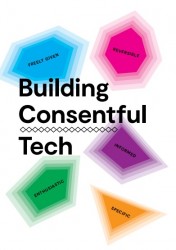
(as originally posted on GutsMagazine.ca on 2/22/2018)
Our data can be so many things: our locations and travel times tracked by Uber, our search and browsing histories on Google, and the words we use frequently in our Facebook posts. Building Consentful Tech prompts tech creators, such as app and platform developers, to reflect on how they can give users more agency and information on how (and whether) they share their personal data.
CHANGING MINDS: Preventing and Healing Childhood Trauma State Policy Guide
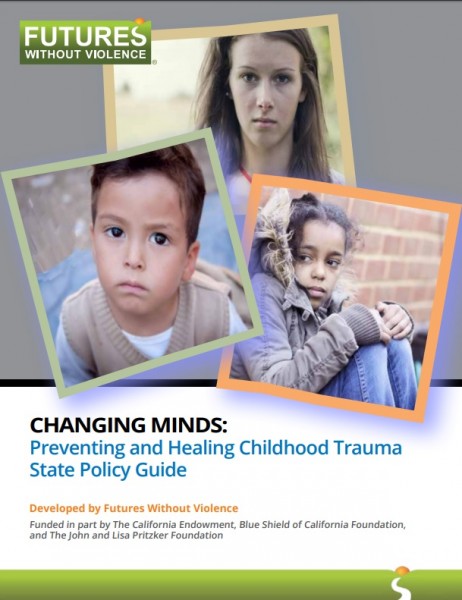
From a national stakeholders gathering of state and local leaders, federal partners, philanthropy, and others, this guide was developed to address how health, education, child welfare, justice, and child development organizations can further the prevention and healing of childhood trauma at the state level.
The objectives for this state policy guide are to outline approaches that can be adapted based on a state’s circumstances and community needs, and address the reality that children grow up and develop in the context of their families, communities, and cultures. Let’s work to prevent and end childhood trauma together.
Click here to access this resource from Futures Without Violence.
Circle of Hope: A Guide for Conducting Psychoeducational Support Groups
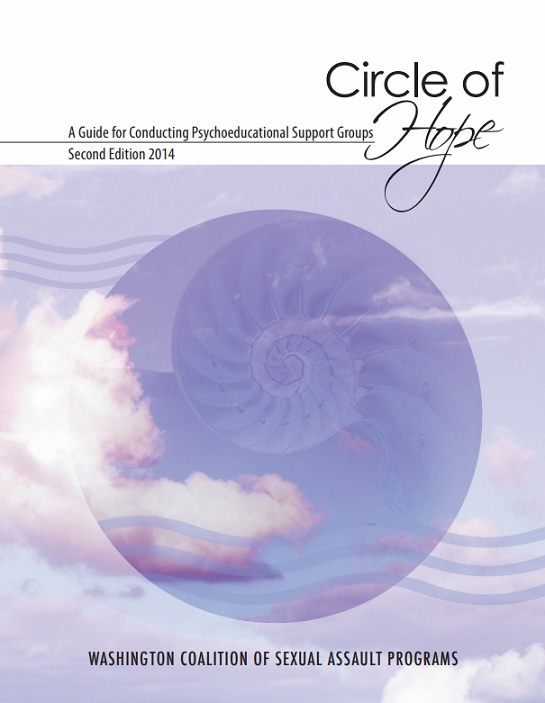
A particularly successful method for working with survivors of sexual assault and trauma is to bring survivors together in groups. Groups are an effective tool in giving hope and providing support, validation, connection, healing, and empathy. At the core of all sexual assault trauma is disempowerment and disconnection. To assist in recovery, empowerment and connection are key factors. It is amazing to witness the transformation that many survivors make because of these groups—because they realize they aren’t alone, because they realize that people care, because they learn that it wasn’t their fault, and because of the hope that comes through connection and validation. The relationships that members develop may be some of the most positive and supportive in their lives. Because these groups can have such a profound impact on survivors of sexual assault, it is vital that as advocates we possess the skills and knowledge to effectively facilitate groups. Hence, the purpose of this manual: to provide a roadmap of sorts, to navigate through the world of psychoeducational support groups.
From the Washington Coalition of Sexual Assault Program, this manual is considered a basic guide, written with beginner facilitators in mind. It offers practical guidance and recommendations for facilitation and design of psychoeducational support groups. The sources include existing research and literature about groups, the Office of Crime Victims Advocacy (OCVA) support group standards, and the experiences of those who participated in writing this manual. We encourage experienced group facilitators to add their own wisdom and experience to the information presented here as they conduct support groups.
Clinical Practice Guidelines for Working with People with Kink Interests
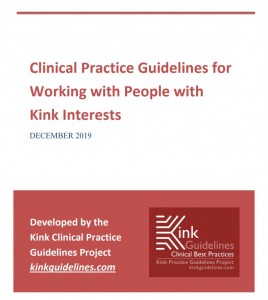
The lack of training and education about kink sexualities and the stigma attached to these interests have resulted in a lack of culturally competent treatment of this oppressed group. The gap calls for the clinical fields to address this unmet need as part of professional ethics and responsibility. Clinical practice guidelines assist healthcare practitioners by identifying high quality services and desirable professional practices. The Clinical Practice Guidelines for Working with People with Kink interests (hereafter referred to as “Kink Clinical Practice Guidelines”) are intended to outline the knowledge, skills, and attitudes important for providing culturally competent care to the population of people who are involved in kink, both kink-identified patients and those involved in kink who do not adopt that identity. Clinical practice guidelines are recommendations, not mandatory requirements. The Kink Clinical Practice Guidelines are not standards of care, nor should they be used to exclude any healthcare provider from practicing in a particular area. The Kink Clinical Practice Guidelines are proposed to improve the care, and minimize harm to the kink community, an underserved
and vulnerable population.
Developed by the Kink Clinical Practice Guidelines Project, December 2019

